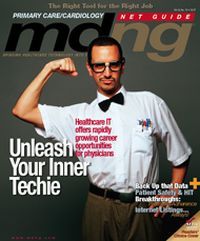Publication
Article
The Word on the Street: When Will Healthcare Operate in Real Time?
In an instant, anyone can Google the up-to-the-minute value of the Yen, the price of any US security, or even the price of a sack of rice in Argentina. Capital markets around the world operate in...
In an instant, anyone can Google the up-to-the-minute value of the Yen, the price of any US security, or even the price of a sack of rice in Argentina. Capital markets around the world operate in real time. They rely on ubiquitous, instantaneous access to the universe of securities industry information (eg, news, price quotes, notices of new issuance of securities to trades). To satisfy the demand for access to concurrent, real-time data, a massive sub-industry has been created (eg, Bloomberg, Reuters, Thomson, and IDC). Accelerating access to information has removed inefficiencies and created a more stable industry that corrects its own anomalies. An example of the value of real-time information can be seen in the term life insurance industry. In the late 1990s, the price of term life insurance plummeted, despite the fact that the product was unchanged and the industry conducted business in the same way it always had. What happened? The Internet. Seemingly overnight, consumers could instantaneously compare the price of many similar products. This forced all insurers to offer more competitive prices. Real-time information, coupled with consumer power, recast a mature, well-established industry, almost overnight.
Can real-time information have the same transforming effect on healthcare? Imagine if all test results, treatment outcomes, cost, and diagnostic data were shared in real time! When information is current and complete, healthcare decision makers can act faster and smarter. The resulting benefits would radiate throughout the enterprise. If all healthcare stakeholders were able to make better decisions and then intervene based on these decisions, the concomitant cost savings would be significant. Arguably, the benefit of using real-time information to make better decisions is greater in healthcare than in financial services.
So why hasn’t healthcare found its “Bloomberg?” Aggregating data and distilling actionable information in healthcare is entirely unlike other industries. Across healthcare’s value chain, there is a persistent lack of consistency in terminology and meaning. Another reason for the lack of real-time data is the absence of a common information source such as the New York Stock Exchange. Finally, until healthcare becomes comfortable with a level of transparency that is available in financial services, there can be little useful real-time data. Too often our industry has used HIPAA as the excuse for not making all data available to all parties.
A similar “privacy hurdle” has been cleared through technology on Wall Street. It could readily be overcome in healthcare as well. Is there any hope that massive amounts of real-time, transparent data will be available in healthcare? Yes, but there is a long way to go. Efforts are underway to standardize healthcare vocabularies. This is a necessary step toward the aim of making specific, actionable information available at the point of care. As was the case with life insurance, informed consumers will be the driving force, in the form of patients who want to check quality ratings for a doctor or a hospital before surgery; managed-care providers who need access to real-time data in order to forecast their exposure; and physicians who must have actionable information at the point of care in real time in order to meaningfully intervene on behalf of a patient. The dearth of real-time-transparent data in healthcare renders clinical decision support nearly useless.
The challenge of real-time data is yet another area in which healthcare can learn important lessons from Wall Street. If our industry wants to realize the kind of productivity gains realized in financial services over the past 20 years, we must be willing to use the same techniques that have proven so valuable to Wall
Street.
Dr. Kennedy is the President and Chief Executive Officer of RemedyMD.






